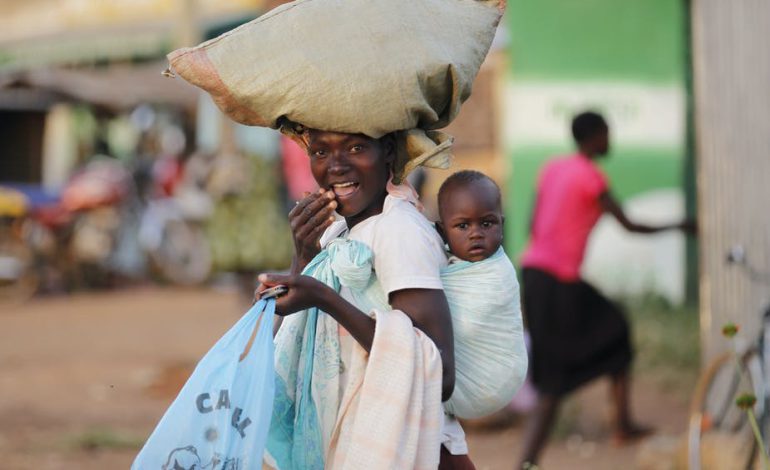The invisible burden women shoulder for society

A four-part tale
The judge:
On Friday, September 24, Justice Teresia Matheka made headlines when she declared that being a housewife amounts to a full-time payable job. According to her, it was an unfair assumption that being a housewife bore no significant contribution to the family’s financial wellbeing and urged her counterparts to take this into consideration for similar future disputes. The landmark ruling, which came as part of a matrimonial property dispute, thus saw the judge award Mary Wambui half of her matrimonial home in the divorce settlement. The declaration elicited mixed reactions from Kenyans and made headlines beyond Kenyan borders. Majority of women and some men agreed while yet another section of men was up in arms over the statement. This was evident from comment sections of various media outlets when the news was shared and is testament to the general opinion held over the issue.
The woman in question:
At the heart of the dispute was Mary Wambui, a mother of three. Mary had sought to have the matrimonial property sold and the money split evenly between her and her ex-husband whom she had been married to for 13 years.
“If housework is to be quantified, it is a lot of work; you start it in the morning and even by evening you’re not done. It’s like a vicious cycle,” said the mother of three during an interview with the BBC.
And while non-financial contribution to the household is acknowledged in the Matrimonial Property Act enacted in 2013, she still faced resistance over the move. Fortunately, the ruling provided relief and validation of her role in the home.
“I feel I am a role model for African women. Women suffer and tend to feel that they don’t own anything,” said Ms. Wambui during the interview.
The stay-at-home mom:
Thirty-year-old Sharon*, a resident of Nairobi, agrees with Justice Matheka that domestic work should be payable, although, for her, the circumstances are different. The mother of one has been a stay-at-home mom (SAHM) for nearly three years after she lost her film production job shortly after she got pregnant, and was unable to find another.
And while she has been able to look after her son for the most part, which she is grateful for, she recognises that being a stay-at-home mom can be quite a task. For starters, the bulk of raising her son and house chores are mostly on her as her partner has to go to work, which sometimes, takes him away from home for a few days. She is however, fortunate that she had invested in equipment to make her work easier such as a washing machine and that her partner is able to meet their current needs. All the same, she is cognizant that not all women who have to attend to domestic work have similar privileges which, naturally, adds to their plate more work.
Secondly, she decries the fact that her social life has become non-existent.
“Your friends no longer want to invite you to places because you’ll either not be able to attend or you have to leave early to go back home and you can’t really blame them,” she says.
As such, she admits that she would not think twice about going back to the field, as according to her, it is important for a woman to make her own money and at some point, was depressed by the fact that she was unable to. In her case, it is especially driven by the fact that she has been fending for herself since she was in campus and not necessarily that either of the two roles might be easier than the other.
She thus cautions the society against making it seem like staying at home is an ‘easier’ option and urges people not to regard SAHMs as disempowered women as according to her, “It is unfortunate that it’s fellow women who tend to look down on stay-at-home moms as people who are uneducated or have nothing better to do with their lives.”
“Women stay home for various reasons and regardless of the circumstances, it should be recognized as viable work that should be paid for, whenever possible. If you were to bring in help, you would pay them for the same roles,” she explains.
The ‘working class’ woman:
In early 2019, the illustration below by a Spanish illustrator went viral. It depicts men and women dressed in suits –to imply that they are working professionals– at the starting point of a race. Interestingly, while the tracks in front of the men are clear, the women have to contend with various hurdles such as a clothes line, ironing table, washing machine, laundry basket and oven; to give the idea of the household chores they need to finish, while being part of the ‘rat race’.
Figure 1: Illustration on inequality by a Spanish illustrator
As the illustration garnered traction online displaying gender parity, it also brought to light the aspect of care work as a task meant for women.
Unpacking unpaid care work
In most households, it is considered women’s natural obligation to take care of the home. This includes caring for the children and other members of the family, handling or delegating house chores and general home-making.
Women’s role in care work. Image courtesy: Oxfam
According to the International Labour Organization, care work is broadly defined as ‘consisting of activities and relations involved in meeting the physical, psychological and emotional needs of adults and children, old and young, frail and able-bodied.’ These activities constitute work as theoretically, a third party could be paid to perform them. The organization also noted that women and girls globally do over 3/4th of the total unpaid care work, and two-thirds of care workers are women. This happens regardless of whether or not the woman holds another paid job creating a ‘doubled burden’ of work for women.
And while some could argue that sometimes this is a choice, majority of people can agree that there isn’t a similar expectation laid on men. According to a 2019 Household Care Survey commissioned by Oxfam through their WE-CARE programme, women were found to spend 11.1 hours on care work compared to men’s 2.9 hours per day. This is representative of how the burden of care work disproportionately lies on women who are either stay at home mothers, community health volunteers, casual labourers or hired domestic help who in most cases tend to be grossly underpaid.
Image courtesy: Oxfam
Aside from the physical and mental load it carries, it furthers gender inequality and the gender pay gap making women vulnerable to situations such as poverty and violence. This is because the expectation to perform these duties that are seen as the preserve of women tends to legitimize various forms of violence against them if they are unable to perform.
Additionally, this time spent by women on unpaid care work, limits access to education and eventually affects their ability to join a paid workforce, build a skill or even take time off for leisure.
The Household Care Survey further noted that ‘Unpaid care and domestic work (UCDW) underpins all societies and contributes to wellbeing, social development and economic growth and yet it remains largely invisible, unrecognized and absent from public policies.’ As a result, these women do not have protection from physical, mental and sometimes sexual harm.
With Covid-19, the situation became even more dire with women being subjected to a heavier burden of unpaid care work compared to their male counterparts. As an Oxfam survey conducted in 2020 reports, 26 per cent of women interviewed in Nairobi’s informal settlements said they had been physically unwell, been unable to get enough rest, or were feeling stressed and anxious because of increased care responsibilities.
Addressing unpaid care work in Kenya
According to Daisy Amdany, who is the Executive Director of the Community Advocacy and Awareness (CRAWN) Trust, unpaid care work and violence against women continues to be perpetuated by traditional beliefs on what the true measure of a good woman is.
CRAWN Trust ED Daisy Amdany. Image courtesy: Crawn Trust on Twitter
“Society has normalized the wrong belief that withstanding pain or suffering is what it means to be a woman,” said Ms. Amdany on an online forum on GBV.
To address this, Ms. Amdany recommends confronting social and cultural structures that continue to disempower women such as the lack of recognition of unpaid care and domestic work as having economic value.
The responsibility to address this inequality, according to activists, also lies with the government and its policymakers. This is especially because the burden of unpaid care work absolves the government of its responsibility to provide care services for its citizens. According to Oxfam, it is possible to address the disproportionate responsibility for care work undertaken by women and girls if the government invests in national care systems and recognizes the economic contribution of care work to society. This includes proper infrastructure to care for the elderly and the sick and provision of services such as education and access to water.
In line with this year’s theme, ‘Orange the World: END VIOLENCE AGAINST WOMEN NOW!’, various stakeholders are therefore calling for a transformative approach to ending gender violence by ‘fostering critical examination of gender roles, regimes and practices, while seeking to create or strengthen equitable gender norms and dynamics for fundamental, lasting changes for women and girls.’
*Not her real name.
Featured image credit: Reuters/Thomas Mukoya
Resources
https://www.unwomen.org/sites/default/files/2021-11/UNiTE-campaign-2021-concept-note-en.pdf
https://profiles.uonbi.ac.ke/tondicho/files/why_battered_women_stay.pdf
https://www.oecd.org/dev/development-gender/Unpaid_care_work.pdf
http://kenyalaw.org/kenyalawblog/highlights-of-the-matrimonial-property-act-2013/




